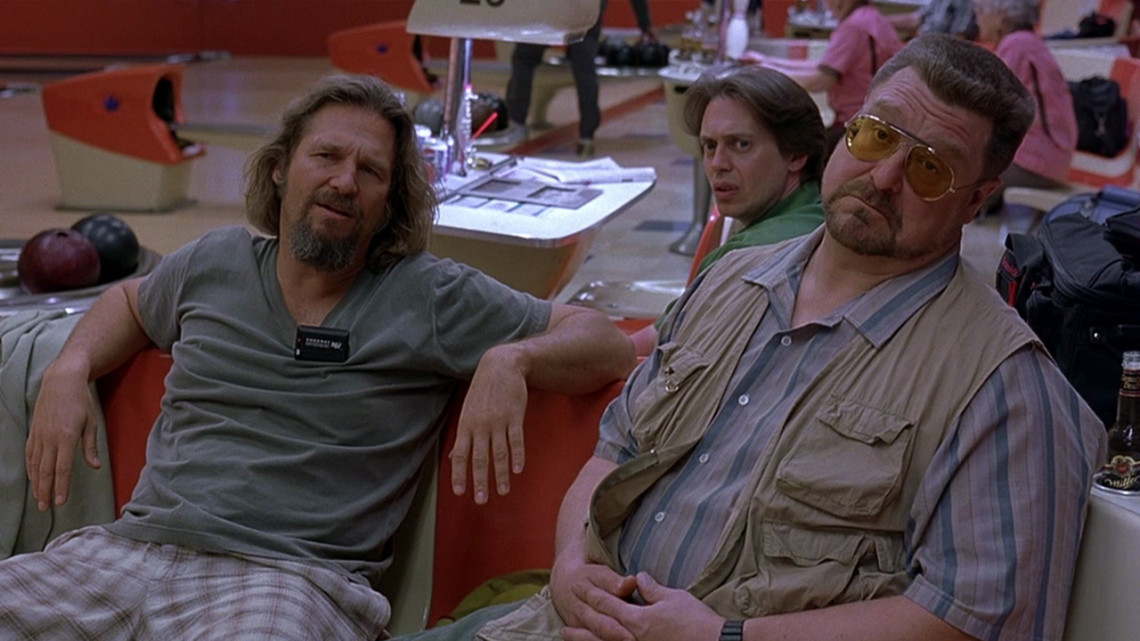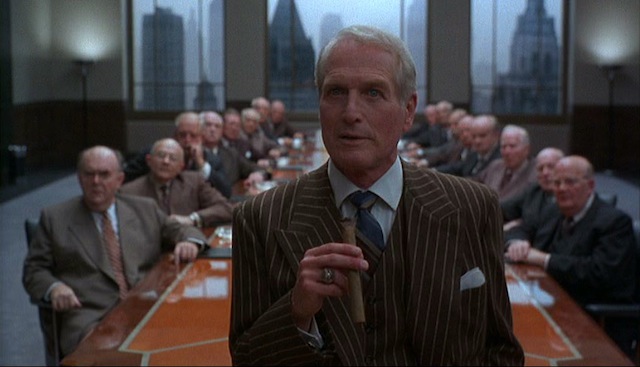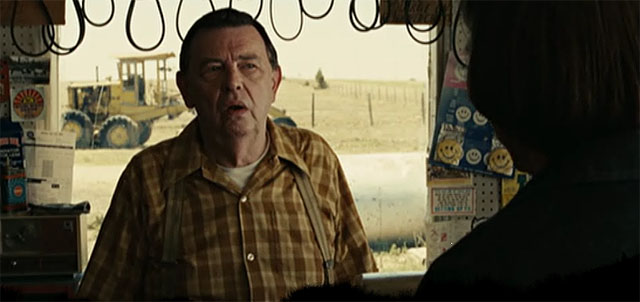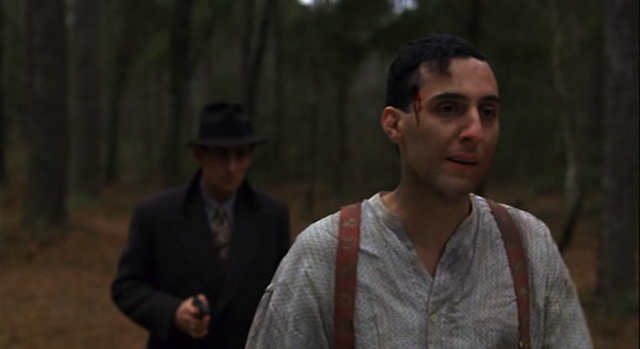Adam Nayman is a well-known figure in the Toronto film community and a critic for The Grid TO and CinemaScope, among other publications. Toronto Correspondent Tina Hassannia had a chance to talk to him about his upcoming course on the Coen brothers, which starts next week at the Miles Nadal Jewish Community Centre (JCC).
Movie Mezzanine: How did you get started teaching film?
Adam Nayman: I started programming for the Toronto Jewish Film Society in 2007-2008 and I knew that the JCC had adult education programs. I’d gone to the University of Toronto and done my MA in Film Studies and there’d been a teaching component to that, TAing classes. And I’d liked that and thought I was fairly good at it. And I remember there’d been times when Toronto critics like Geoff Pevere had done lecture series at theatres. And I’d always liked that, and liked seeing stuff like that at film festivals. I thought with the JCC as a community hub it might a good place to talk about films. In the beginning I was concerned because I didn’t think I could do much with explicitly Jewish content, but the thing about the JCC and my boss is that they’re very flexible. I don’t want to give the wrong impression—it’s not like you can teach anything there—but the idea is that their cultural/media/film studies is a kind of autonomous entity and they don’t want to presume too much of the interests of the people who go there. The JCC believes it is a space that’s welcome and inviting to anyone.
MM: What have you taught for the JCC in previous courses?
AN: The first few things that I suggested to teach were New Waves and international cinema. And then when I started doing classes on individual directors the attendance started going up—and it wasn’t because I was focusing on North American filmmaking. It was that instead of covering 10-11 films over 40 years in 2 hours you’re focusing in on one director. And because I think film fans are auteurists whether they’re conscious of it or not, that really appealed to me. I did one class for Woody Allen and 130 people showed up. That was when I started to realize that the sweet spot was not doing a course on film studies or auteurist studies but something that had particular Jewish interest. The Allen course got me thinking about what I could do to get 120 people coming out every night. And so I thought about Stanley Kubrick, who is Jewish. That’s not a huge aspect of his cinema but it’s there. It’s certainly it’s an aspect of his life. His films are all famous enough. So I managed to get a lot of people to come out. With the Coens, I’m really not sure how’s it going to go. That’s not false trepidation—I’m curious. They’re extremely popular. To a certain extent they’ve made some of the most iconic movies of the last 20 years. But I don’t know if people have the same obsessive attachment to them. They’ve made a lot of films. It’s not like Kubrick where there are only 8-9 of them. With the Coens there are 15-16.
MM: It’s a lot of territory to cover. I noticed with the course schedule that you’re basically doing a double bill structure.
AN: It’s like a double bill every week. So this is sort of an experiment. I’m curious to see how many people want to come out and hear a lecture about The Hudsucker Proxy, or see a lecture about True Grit and The Ladykillers placed in conversation. I’m trying to tell a story about their career through the whole course. So that even though each week is focused on individual films there are callbacks, themes and ideas being developed from beginning to end. But you also have to make each class stand on their own, so that if someone shows up for the first time in the fourth week they don’t feel completely lost.
MM: I also noticed that you’re working through the films mostly in a chronological fashion.
AN: Yes, sort of. If not then it’s an early film juxtaposed with a late one. Half-way through the course I cover the middle and prime of their career with Fargo and The Big Lebowski. To me those two films are an interesting way of examining how films’ reputations change over the years. Fargo was not a film that had any expectations attached to it. It was a comeback that no one was expecting. With Lebowski there were many expectations attached to it: that they would make money, win Oscars and make another American classic. And it failed those expectations. Except that now 15 years later, it’s easily the most popular of their films and…
MM: You could say a classic.
AN: Oh yes, certainly a classic. So Fargo was the ratified out-of-the box classic and Lebowski was kind of the late-breaking retrospective cult classic. They’re similar in other ways. They’re both films about kidnapped women and unconventional detectives. Marge in Fargo is unconventional by nature of her gender, her pregnancy. She’s also the odd woman out in a film dominated by men, and for the most part by avaricious, nasty men. So there’s something almost something conservative and reactionary in view against a basic maternal figure set against these overgrown man children and conquering them through the force of her goodness.
MM: Do you believe the Coens films are conservative then, in a way?
AN: Yes I do. It’s an interesting aspect to their cinema. When you see a film like Raising Arizona it concludes with this rapturous fantasy of an Americana life that doesn’t feel like it’s really part of the ’80s. That film is quite savage in its depiction of revolving-door prisons and economic disparity and the baby craziness that afflicted America in the late ’80s. It’s a movie they made when they were both starting their own adulthood. But when the Nicolas Cage character dreams of his paradise, it’s a kind of Norman Rockwell painting—that’s not necessarily a bad thing, but it’s a dream that seems unattainable because he’s such an uncouth criminal guy and yet it’s what he strives toward. A lot of their films, The Ladykillers especially, go out of their way to mock ’60s counterculture and show it as being kind of ethically bankrupt. J.K. Simmons’ character talks about being a freedom rider and marching for civil rights movement with Martin Luther King, but he’s a thief and a hypocrite, a figure of fun, and so is his hippie girlfriend. Lebowski is a perfect example of how the counterculture loses its way because he’s reduced halfway through the film to mouthing the first George Bush: “this aggression will not stand.” I mean this is a guy who participated in campus sit-ins and now he’s using the language of a Republican president. No Country for Old Men is a deeply conservative book and in that regard I think the film is fairly faithful. It seems to sort of suggest that the beginning of ’80s America has changed: it’s gotten scarier, it’s gotten more lawless. The film seems to attribute that in some regards to external forces as opposed to internal corruption.
MM: Do you work on the idea that the Coens are coming off as conservative since this an auteurist course, or are you trying to read the films as political texts, Death of the Author-style?
AN: I’m trying to do both. I start the course with the scene from Raising Arizona where the two brothers are emerging bellowing out of the mud. Because I think that’s a perfect encapsulation on how people felt about these two brothers when they showed up in the ’80s. Like where did the hell did these people come from? They’re kind of scary and ridiculous. Kent Jones said something along the lines of of being hard-pressed to find other filmmakers who are so successfully hidden in their work while simultaneously being completely upfront. You would never mistake their visual, verbal or acting style for anybody else. They dabble… they don’t just dabble, they forcibly grab genres by the throat and make them theirs. But they also created their own self-contained genre. They make screwball comedies, mysteries, westerns, splatter horror films, romantic comedies—and yet all they ever make are Coen brothers movies. They have this kind of political conservative edge to them but they’re also people who move freely and happily and quite collaboratively within Hollywood. And they don’t ever speak outside of their work as having any political agenda. Whatever political agenda is in their films work seems subordinate to the other Coen-y aspects, like the narrative contraptions, the stylization, the violence and the comedy.
MM: Will you cover Jewish themes outside of A Serious Man?
AN: When they’re there, yes. The Big Lebowski has the quite hilarious contradiction of the John Goodman character being fanatical about his Judaism when he’s a convert from marriage and post-divorced. He has that great line: “3000 years of beautiful traditions from Moses to Sandy Koufax, you’re goddamn right I’m living in the fucking past!” There’s the interesting way the Jewish character is figured in Miller’s Crossing which is as an embodiment of hypocritical, and in this film, homosexual evil. That film is about a nefarious homosexual triangle between secondary characters that we don’t know nearly as well as the heterosexual love triangle with the primary characters. But they mirror each other. And John Turturro’s character is both the most vulnerable and pathetic, as well as the most evil and hateful character in the film—and he’s the Jewish guy between the Irish and Italian mob. And that’s quite interesting. Some people saw that as a case of self-hatred and…
MM: Perhaps a case of self-deprecation?
AN: Yes, Jewish self-deprecation. I mean A Serious Man puts those issues front and centre in a way that their other films figured more subtly. But there are always these stray moments that relate back to Jewish stuff. Even Turturro’s character’s funeral in Miller’s Crossing, there is this oblique shot where there’s nobody at the funeral. That’s the joke because everybody hated him. but there’s the rabbi, off to the side. The thing is, when you have people working for this long making movies that everyone sees, there’s a lot of stuff to look at. It’s fascinating to look across their 15-16 films and see how much stuff does reiterate and recur. It’s the same thing with Kubrick; with these control freak directors it’s spooky how consistent they let themselves be. There are shots and turns of phrase in early Coen films that are replaced later. One that I noticed both in Fargo and Intolerable Cruelty are running jokes about nailing a guy’s ass and something about the sexual proclivities of a seemingly alpha male heterosexual character. Intolerable Cruelty and Miller’s Crossing could be compared with how subliminally gay they are. Burn After Reading and Intolerable Cruelty could be put together as stories about paranoia and infidelity. The Ladykillers could be paralleled with Fargo as stories about a good woman against a cabal of evil men. Raising Arizona and No Country are both stories of pursuit, an apocalyptic force approaching a main character. There are many crossing streams here and it was quite hard to figure out which films should go together.
MM: There seems to be just so many threads and possibilities to make the films talk to one another.
AN: And I hope that they do talk to each other. I think that there’s a danger of reading too much in films and it’s a one all critics have to deal with. What attracts critics to the Coens is that stuff seems to be there by design, because everything else is.
The Coen Brothers in Nayman’s Terms class begins next week, and takes place every Monday evening from 7-9pm at the JCC from Feb 25-April 29.
Series price: $90. Single ticket drop-in: $12 ($6 for students and Toronto Jewish Film Society members with valid ID).
For more information and the class schedule, visit the JCC website.




















